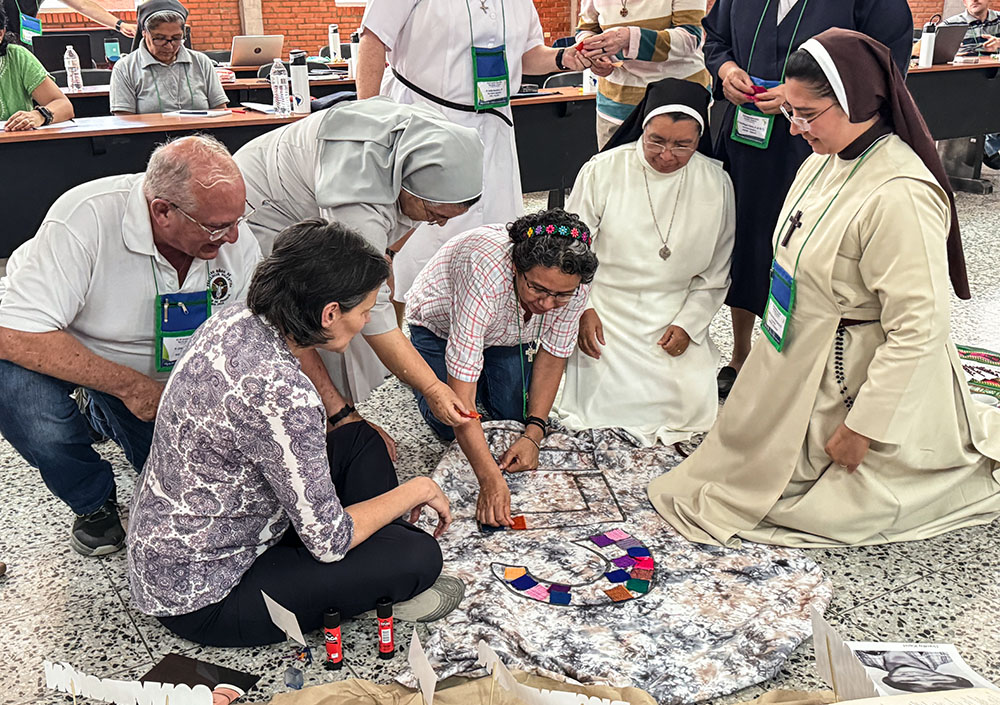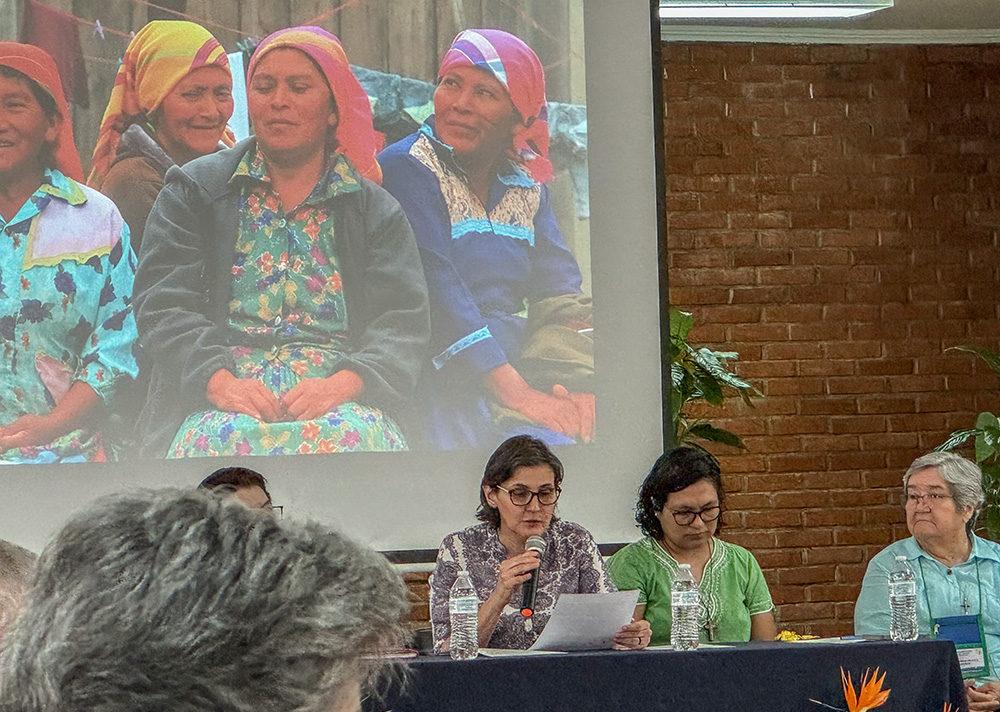~ by Rhina Guidos, Global Sisters Report
Leaders from the largest group of women and men religious in Latin America and the Caribbean said in an April 18 meeting in Honduras that consecrated life in the Americas must keep calling out injustices, in light of events taking place in the hemisphere.
From persecution of church members in Latin America, as well as fighting for the growing numbers of the poor and excluded, consecrated life is “called to recover its prophetic voice,” Sr. Daniela Cannavina, general secretary of the Confederation of Latin American and Caribbean Religious (CLAR), said at the organization’s annual board meeting.
 Speaking to some 60 general secretaries, presidents of religious conferences and theologians from Latin America and the Caribbean gathered at Honduras’ Catholic University campus in Las Tres Rosas, Cannavina told the women and men of CLAR’s board to pray and reflect on the organization’s richness of prophets.”That is why we wanted to put before you, images of some of the hundreds of prophets who irrigated our continent with their words and blood,” said the Capuchin Sister of Mother Rubatto, referring to a display of photos and renderings of women and men religious — as well as lay companions and diocesan priests — martyred in Central and South America in the 20th and 21st centuries.
Speaking to some 60 general secretaries, presidents of religious conferences and theologians from Latin America and the Caribbean gathered at Honduras’ Catholic University campus in Las Tres Rosas, Cannavina told the women and men of CLAR’s board to pray and reflect on the organization’s richness of prophets.”That is why we wanted to put before you, images of some of the hundreds of prophets who irrigated our continent with their words and blood,” said the Capuchin Sister of Mother Rubatto, referring to a display of photos and renderings of women and men religious — as well as lay companions and diocesan priests — martyred in Central and South America in the 20th and 21st centuries.
The display, set in the middle of the room where the group gathered, included two Maryknolls and an Ursuline from the U.S. killed in El Salvador in 1980, several Jesuits, a U.S.-born member of the Sisters of Notre Dame de Namur killed in Brazil in 2005, and an Augustinian Recollect missionary sister as well as a Salesian, killed for their defense of the poor or the environment.
 turned 65 this year and represents 150,000 women and men religious. Company of Mary Sr. Liliana Franco, president of the organization, told the group that CLAR must be a continuation of their predecessors’ prophetic work, given the difficulties populations in Latin America and the Caribbean are facing, including corruption, political instability, massive migration, economic inequality, spiraling violence, persecution and climate change.
turned 65 this year and represents 150,000 women and men religious. Company of Mary Sr. Liliana Franco, president of the organization, told the group that CLAR must be a continuation of their predecessors’ prophetic work, given the difficulties populations in Latin America and the Caribbean are facing, including corruption, political instability, massive migration, economic inequality, spiraling violence, persecution and climate change.
Even in that environment, women and men religious, like their predecessors, remain by the side of those who suffer most because of those conditions, Franco said.
Many of the women and men religious in the assembly were facing daunting conditions of their own at home or in the countries where they serve.
Those from Cuba spoke about food and fuel shortages making it difficult to carry out their missions, as well as the difficulty of Catholics practicing the faith amid limited religious freedom. Others spoke of crumbling social and economic conditions leading to an exodus of Catholics throughout Latin America.
But many also spoke to Global Sisters Report of the love of those they serve, largely the poor, the elderly, the excluded or forgotten, those who stay or have been left behind. To read the entire article, please click here
